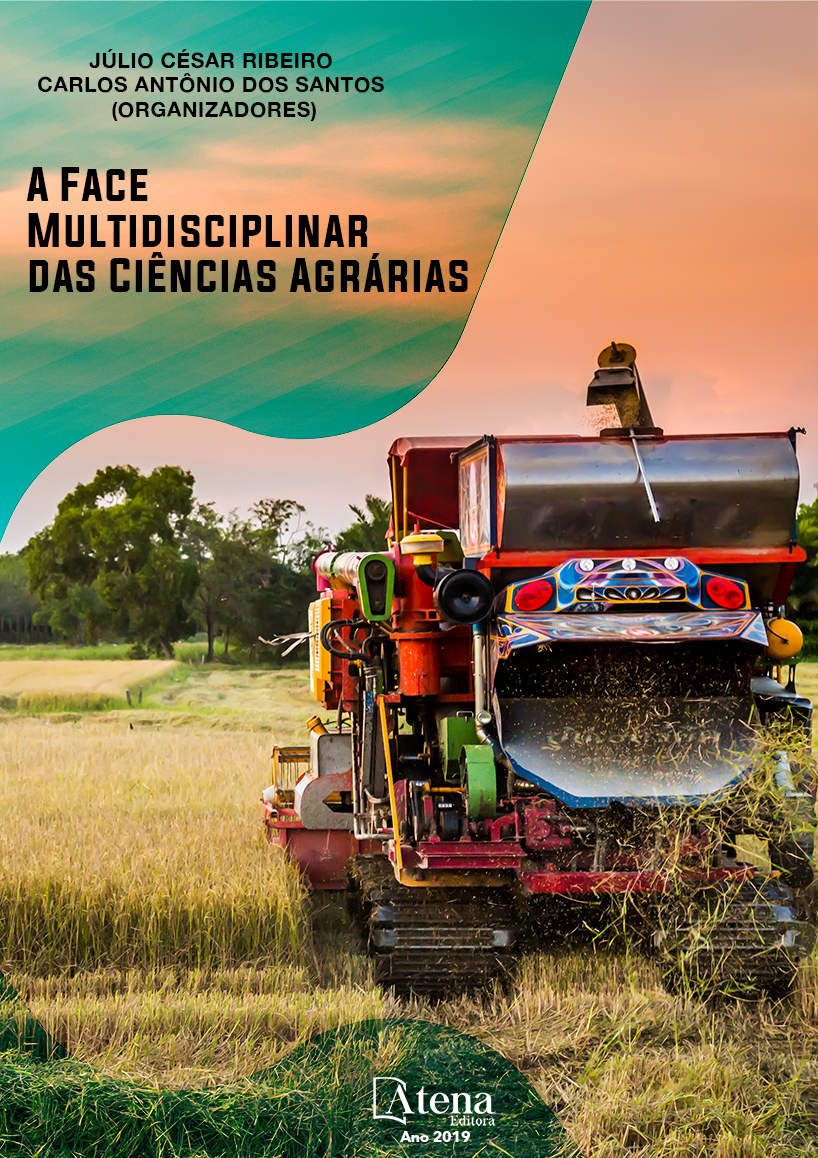
ESTUDO DO EFEITO DO ÓLEO ESSENCIAL DE MANJERICÃO (Ocimum basilicum L.) SOBRE O CARRAPATO BOVINO Rhipicephalus (Boophilus) Microplus EM ENSAIOS “IN VITRO”
A utilização de produtos naturais e
o controle biológico no combate aos carrapatos
apresentam maior segurança, baixo custo, boa
eficácia, nenhum dano ao ecossistema e à
saúde humana. Sendo assim, uma alternativa
ecologicamente viável para o controle dos
carrapatos. Neste experimento foi avaliado
o efeito do óleo essencial de manjericão
(Ocimum basilicum L.) sobre o carrapato
bovino Rhipicephalus (Boophilus) microplus
em ensaios “in vitro”. Para isso, foram testadas
9 concentrações: 0,5, 1, 5, 25, 30, 35, 40,
45 e 50%, diluídas em água destilada e óleo
mineral, seguindo a metodologia do teste
de biocarrapaticidograma. Os dados foram
submetidos à análise de regressão, a um nível
de significância de 5%. Perante os resultados
foi observada inibição de postura de 37, 47, 69,
89, 90, 94, 98, 96 e 100%, eclosão larval de
79, 75, 68, 51,14, 7, 6, 0 e 0% e a eficiência do
tratamento de 26, 42, 59, 88, 99, 95, 99, 100
e 100%, respectivamente. A concentração do
óleo essencial de manjericão foi inversamente
proporcional à postura, e a eficiência do
tratamento aumentou gradativamente, atingindo
seu ponto máximo nas concentrações 45 e 50%
com eficiência máxima. As concentrações 30,
35, 40, 45 e 50%, atendem o valor mínimo de
eficácia recomendada, de acordo com a atual
legislação relativa à comercialização brasileira,
que prevê valores mínimos de eficácia para
registro de produtos de 95% de eficácia. O
óleo essencial de manjericão obteve um efeito
negativo sobre os parâmetros reprodutivos
de teleóginas de Rhipicephalus (Boophilus)
microplus.
ESTUDO DO EFEITO DO ÓLEO ESSENCIAL DE MANJERICÃO (Ocimum basilicum L.) SOBRE O CARRAPATO BOVINO Rhipicephalus (Boophilus) Microplus EM ENSAIOS “IN VITRO”
-
DOI: 10.22533/at.ed.0201929077
-
Palavras-chave: Carrapato. Biocarrapaticidograma. Manjericão. Homeopatia.
-
Keywords: Tick. Biocarrapaticidograma. Basil. Homeopathy.
-
Abstract:
The use of natural products and biological control in the fight against
high-security riots, low cost, good action, no damage to the ecosystem and human
health. Thus, an ecologically viable alternative for the control of ticks. In this work the
effect of basil oil (Ocimum basilicum L.) on the bovine tick Rhipicephalus (Boophilus)
microplus was evaluated in “in vitro” assays. For this, 9 units were tested: 0.5, 1, 5,
25, 30, 35, 40, 45 and 50%, diluted in distilled water and mineral oil, following the
methodology of the biocarrapatiociogram test. Data were submitted to regression
analysis, a level of significance of 5%. With the results of the inhibition session of
37, 47, 69, 89, 90, 94, 98, 96 and 100%, larval hatching of 79, 75, 68, 51, 14, 7, 6, 0
and 0% and efficiency of the treatment of 26, 42, 59, 88, 99, 95, 99, 100 and 100%,
respectively. The essential focing to basil was given proportionally to the posture, and
the teaching efficiency was quite high, with its positioning at rates of 45% and 50% with
maximum expenses. Concentrations 30, 35, 40, 45 and 50%, meet the minimum stock
value, according to legislation for the Brazilian literature, with minimum registration
values for 95% product registration. The essential oil of basil is of a negative effect on
the reproductive parameters of the telegraphs of Rhipicephalus (Boophilus) microplus.
-
Número de páginas: 15
- Olívio Bochi Brum
- Daniela Sponchiado
- Jéssica Cassol


